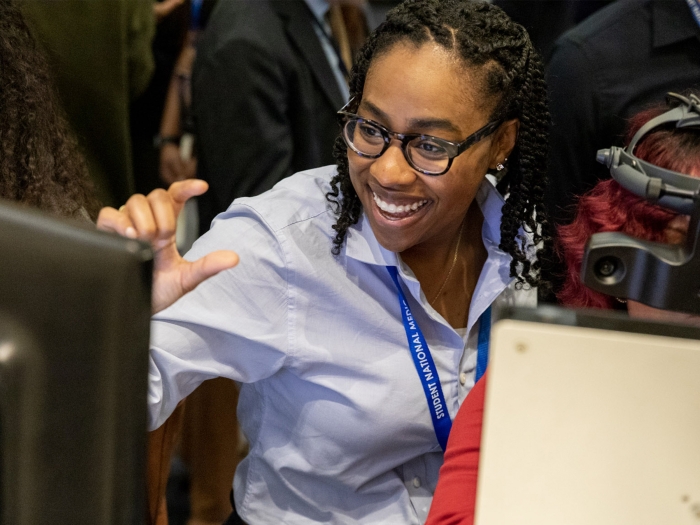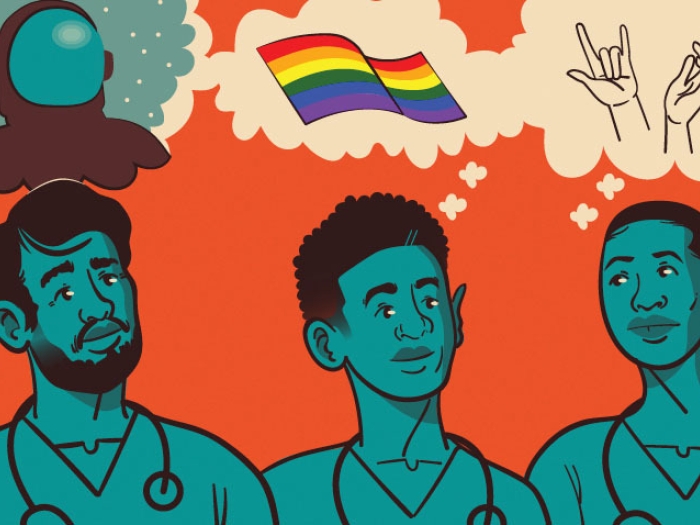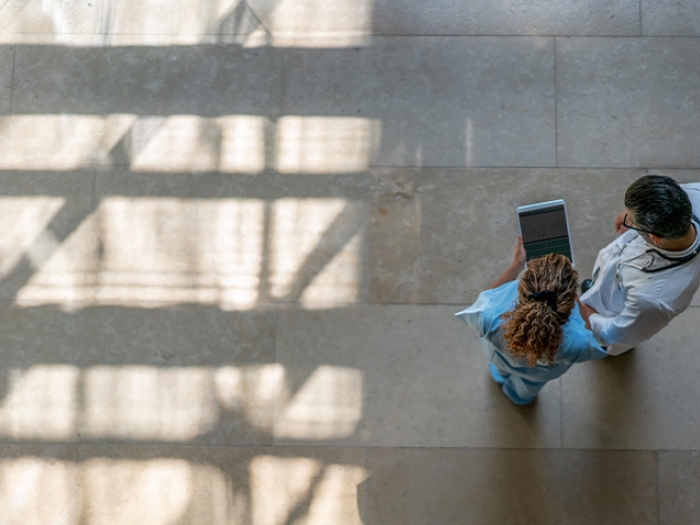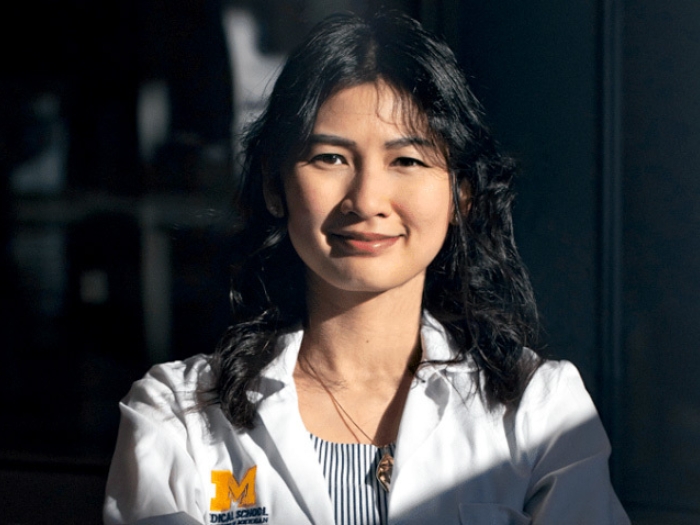After making it through the first year, one U-M medical student discovered that the learning process is far from finished. Here, she shares more nuggets of wisdom.
7:00 AM
Author |
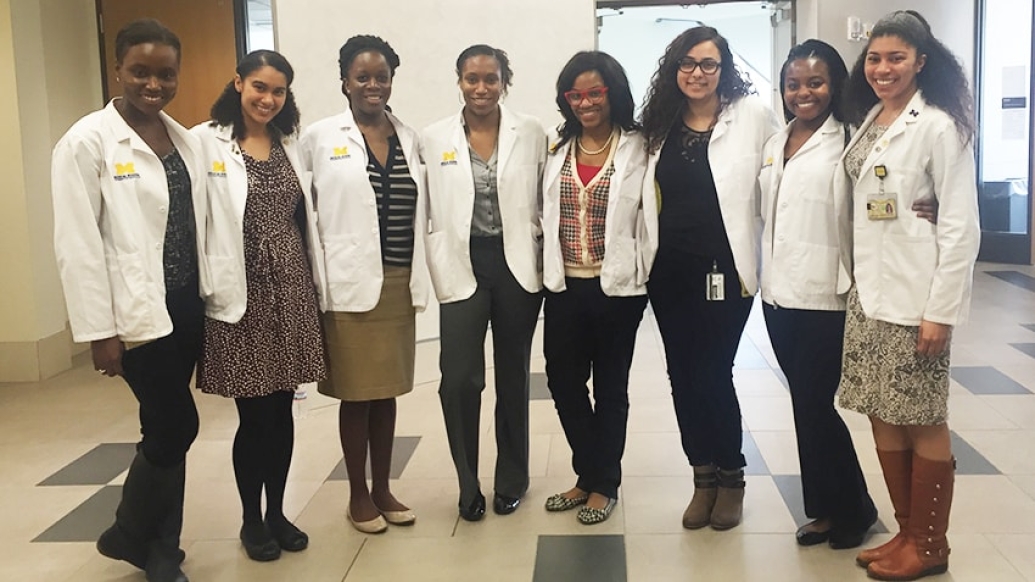
The summer between M1 and M2 years was a beautiful 11 weeks full of research and vacation. It was a time to refocus and refresh for the next year of study.
But M2 year hit us in a rapid and unrelenting way.
MORE FROM THE LAB: Subscribe to our weekly newsletter
I quickly learned that there was still so much more to know about medicine, but I also realized that I had learned a few things M1 year. M2 year was both a difficult and exciting time because we were able to pass over every system again in preparation for the wards, but we also were aware that our national board exams were waiting for us at the end of the year (and represented the last hurdle for us before we actually saw patients as an M3).
I had a bit of time to look back on my second year at UMMS and thought that I would again share a few things that I have learned.
Your M2 year is worse than M1 — but also so much better.
The stakes are definitely higher this year. Step 1, or "the Boards" — an eight-hour marathon that is the first part of our national licensing examination — is at the end of the year. Some blocks only have an exam and no quizzes, which put much more pressure on us to manage our own study time. This year, I always felt like I had to be much more prepared, pretty much all of the time.
Still, the material was SO much more interesting than during my M1 year. We focused on abnormal systems, learning what happens when things in the body go very wrong instead of how the body works when things are going well. The material covered this year felt much more like what I imagined medical school would be like.
'Med student syndrome' is real.
Learning about tons of diseases with vague symptoms can get to you after a while. More than one of my classmates has admitted to being more of a hypochondriac after starting med school.
SEE ALSO: One Medical Student's Mission to Erase the Stigma of Depression
I may (or may not) have self-diagnosed myself with a multitude of medical issues. I was mostly wrong, except for that one time I was right — that day, I was pretty proud of myself. More often than not, our concerns are just us being neurotic, but if you're really concerned about something, be sure to see your doctor.
Your study method is perfect (until it isn't).
Coming into my M2 year, I thought that I had perfected my study method until I came to Neuro, when I quickly realized that my study method wasn't cutting it. Instead of self-destructing like I would have the prior year, I changed what I was doing.
It seems like a small and relatively obvious step, but if nothing else, medical students are creatures of habit. We study in the same places in the same way day after day. The simple fact that I had learned to adjust at some point over the past two years is an amazing step, and one that will be very helpful on the wards.
Step 1 is scary, but what comes after matters so much more.
Let's be real: Step 1 is incredibly scary because it always feels like so much is riding on that three-digit score. It's easy to forget that we haven't spent the last two years exclusively preparing for this. Instead, we've spent the last two years learning the basic science foundations of the diseases that our patients will have so that we can one day learn how to take care of them.
Step 1 is merely the gateway that we must pass through in order to do so. When we forget that everything we do is actually about the patients, trouble arises. Some of my worst days during study period were those in which I forgot that everything I do and all of the sacrifices that I make are for my future patients.
On my absolute worst Step 1 study day, when I was in an awful mood and the absolute worst version of myself, I walked up to school and saw a patient going into the cancer center for chemo. It hit me hard and fast: There are real people suffering from real diseases out there. That encounter quickly put things into perspective and snapped me out of my awful mood. Patients are what we are here for and what this whole journey is all about.
Things still won't always go as planned — and it's still OK.
Life doesn't stop just because you're in medical school. People that we love pass away, relationships end, friendships hit rocky points, and sicknesses occur. Sometimes, it's important to take a step away from medicine to take care of life. Yes, this puts you behind on your study schedule — but, when necessary, it's more important to be present in your own life.
SEE ALSO: From a Freshman Year 'F' to a Third-Year Med Student
I'm the absolute worst at this, but even I definitely had to take a couple of deferrals this year due to illness. The most important thing was that I was back to functioning and ready to go, even if it meant taking an exam two days late and being behind on the next block. We're still people, even if we want to be invincible, and it's OK if something affects us now and then.
Some days are just really hard.
There were many good days this year, but there also were ones that seriously made me reconsider my decision to go into medicine.
For example, in my clinical reasoning elective, I had a really troubling encounter with a patient. The health care system failed this patient in a big way, and I found this incredibly distressing. I knew that the health care system wasn't perfect; I had dealt with its overarching fallout in public health. However, this was the first time that I truly realized that by entering the health care system, I was now a part of the problem and would be fighting this for the rest of my life.
I am now part of a system that tries to do right by patients but can actually hurt them significantly in the process. It's easy to talk about failures of the health care system, but it's an entirely different situation to see how patients' lives are impacted. It's an encounter that has stuck with me, and I get the feeling that it will be one of those that I will never forget.
Find your role model.
One of the best parts of being at an amazing academic medical center is that there are role models everywhere. Every now and then, there's a physician who shows me exactly what I don't want to be (which is also useful). However, for the most part, I'm surrounded by truly amazing physicians who genuinely care about their patients and are all-around fantastic humans.
One such physician was my clinical reasoning elective preceptor. She taught me so much about how the social determinants of health can impact patients' lives in big ways. Her actions made it more than obvious that she cared about her patients and went above and beyond expectations for them. I want to be her when I grow up.
These role models teach us about the art of medicine, which is something that can't be taught in a classroom. In short, we all need people to look up to, and there is no better time to find a role model than when you're surrounded by so many.
Take time for yourself.
Disclaimer: I am horrible at this. I have a really bad habit of hitting the gas pedal and neglecting the brakes until illness forces me to slow down. However, this year, I tried to do nice things for myself now and then. I tried to go for runs or to yoga, I made an effort to spend time with friends and family, and I bought myself some fancy loose-leaf tea to enjoy.
When life is otherwise ridiculously busy, small things make all the difference. It's important to find a couple of pursuits that keep you sane and ensure that they find their way into your schedule. Time away from studying doesn't seem worth it sometimes, but I promise that it is.
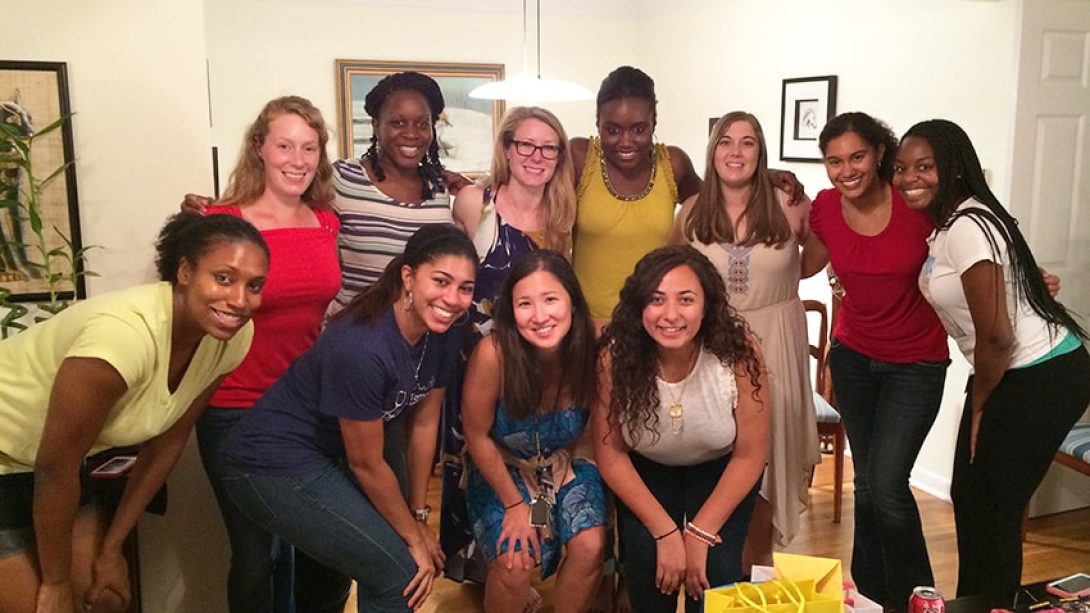
Lean on your people.
My support system is still the reason why I have made it this far. I don't know what I'd do without my family, friends and mentors. They're the reason that I keep going on my worst days, and they're always behind me in my best moments.
I can't imagine making this journey without them. I also can't thank them enough for all of the encouragement in the past year and for putting up with me on days when I was at my absolute worst (I'm looking at you, Step 1 study period).
There is still truly nothing that I want to do more.
This year, someone asked me if I would take the same pathway if given the choice again. There are days when I question the decision, but I can still stand here confidently and say "Yes."
SEE ALSO: 'Why I Became a Doctor': Michigan Medicine Physicians Share Their Stories
The intersection of public health and medicine is where I am in my happy place; it's my calling, it's where I belong. I was talking with a friend who is about to start residency, and he mentioned that he can't imagine having a job that was "just a job."
He's right: Medicine isn't for those who want to clock in and out at whatever time and leave everything behind. Medical school is a sacrifice, and the sacrifice certainly doesn't end when you have "M.D." behind your name. However, it is so worth it when you realize that lives can be absolutely changed because of the work you do.
Tomorrow, I will wake up, don my white coat and head to my first day of clinic. While I'm glad to put M2 year behind me, I am also glad that I had the experiences I did. Hopefully, some of the lessons I've learned will help me on the wards, but I know that these lessons have also shaped the person I've become since starting medical school. I can't wait to see what the next year brings.
This article was originally published on Dose of Reality, the blog of the University of Michigan Medical School.
Please note some curriculum components mentioned in this article have been updated as part of the school's MD curriculum transformation. For the most up-to-date information, visit the UMMS website.

Explore a variety of healthcare news & stories by visiting the Health Lab home page for more articles.

Department of Communication at Michigan Medicine
Want top health & research news weekly? Sign up for Health Lab’s newsletters today!
